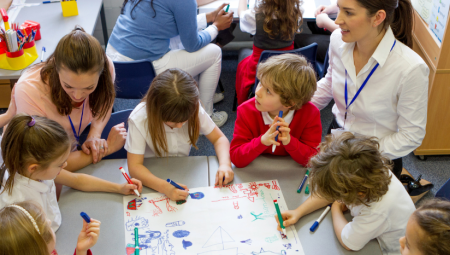Background
We do not know which young people are accepted and rejected when referred to Child and Adolescent Mental Health Services. We also do not know what treatments by Child and Adolescent Mental Health Services lead to positive change in these young people, or how much these treatments cost.
This application was co-designed with experts by experience of both Child and Adolescent Mental Health Services and social work services. Coming together, we designed a study with six parts. We draw on anonymised health, education and social care records for young people in South London & Maudsley and Cambridgeshire and Peterborough NHS Trusts. The South London dataset also contains anonymised case records including referral documents, assessments, correspondence and progress notes.
We will:
- Examine the socioeconomic and demographic context, clinical needs, and long-term outcomes for Children and Young People with Social Work Involvement whose referral is accepted or rejected by Child and Adolescent Mental Health Services in South London.
- Distinguish forms of Child and Adolescent Mental Health Services treatment, and analyse which forms lead to positive outcomes for Children and Young People with Social Work Involvement and other young people in South London. We will also examine how factors such as poverty and ethnicity impact effectiveness.
- Repeat the analysis in Cambridgeshire and Peterborough, to check and extend our findings.
- Analyse how much the treatments cost and quantify for commissioners and policymakers the positive outcomes achieved through these costs.
- Use close study of clinical notes and interviews to qualify and deepen our understanding.
Project Aims
The research questions for our quantitative studies are:
- What are the socioeconomic and demographic factors, clinical needs, and long-term outcomes of Children and Young People with Social Work Involvement whose referral is accepted or rejected by Child and Adolescent Mental Health Services? (WP1, WP3).
- What Child and Adolescent Mental Health Services interventions predict better outcomes for which children and young people? (WP2, WP3).
- What demographic factors and service factors at intake predict better outcomes for which children and young people? (WP2, WP3).
- What are the cost effectiveness and cost consequences of these forms of intervention? (WP4).
The objectives for our quantitative studies are to:
Characterise the socioeconomic and demographic factors, clinical needs, and long-term educational outcomes and use of emergency care services for:
- Children and Young People with Social Work Involvement referred to Child and Adolescent Mental Health Services and accepted.
- Children and Young People with Social Work Involvement accepted on re-referral after 6 months.
- Children and Young People with Social Work Involvement referred but never accepted by Child and Adolescent Mental Health Services (WP1, WP3).
- Develop a taxonomy of forms of Child and Adolescent Mental Health Services interventions (WP2).
- Identify which forms of Child and Adolescent Mental Health Services intervention predict positive outcomes for children and young people, and where this differs for Children and Young People with Social Work Involvement (WP2, WP3).
- Investigate covariates and moderators of treatment effectiveness (WP2, WP3).
- Analyse the cost-effectiveness and cost-consequences of different forms of intervention (WP4).
Our co-produced qualitative studies (WP5) have two exploratory research questions:
- How are Children and Young People with Social Work Involvement and their social care needs characterised in Child and Adolescent Mental Health Services case notes?
- What is the experience of Child and Adolescent Mental Health Services among Children and Young People with Social Work Involvement?
This exploratory work will:
- Examine the characterisation of Children and Young People with Social Work Involvement and their care needs in Child and Adolescent Mental Health Services case notes.
- Interview Children and Young People with Social Work Involvement to understand their experiences of Child and Adolescent Mental Health Services.
Project Activity
There are five interrelated work packages (WP):
Work Package 1 (WP1) - Examining accepted and rejected referrals - South London and Maudsley NHS Foundation Trust The Clinical Record Interactive Search
Using data from South London and Maudsley NHS Foundation Trust The Clinical Record Interactive Search, we will examine sociodemographic and referral characteristics associated with accepted and rejected referrals in Child and Adolescent Mental Health Services and the longer term outcomes for these young people.
Work Package 2 (WP2) - Assessing interventions - South London and Maudsley NHS Foundation Trust The Clinical Record Interactive Search
A Delphi study will be conducted to create a typology of Child and Adolescent Mental Health Services interventions. Using South London and Maudsley NHS Foundation Trust The Clinical Record Interactive Search, propensity score matching will compare Children and Young People with Social Work Involvement to a group of children and young people without a social worker. We will study the services provided to different Children and Young People with Social Work Involvement, and explore the relationship between the interventions identified in the Delphi and outcomes for Children and Young People with Social Work Involvement in terms of mental health, education, suicidality and self-harm, and wellbeing
Work Package 3 (WP3) - Replication of WP1 and WP2 – South London and Maudsley NHS Foundation Trust The Clinical Record Interactive Search
We will use data from Cambridgeshire and Peterborough NHS Foundation Trust to conduct a replication of WP1 and WP2.
Work Package 4 (WP4) - Economic analysis
We will conduct an economic analysis to determine the economic impact and downstream public costs of the interventions and supports identified in WP2 and WP3.
Work Package 5 (WP5) - Coproduced qualitative studies
With experts by experience, we will undertake co-produced research looking at clinical case notes in South London and Maudsley NHS Foundation Trust The Clinical Record Interactive Search, and using the ‘consent for contact’ register to aid recruitment for an interview study.
Who is involved?
Corresponding researcher: Dr Robbie Duschinsky, Head of the Applied Social Science Group, University of Cambridge
- Professor Tamsin Ford, Professor of Child and Adolescent Psychiatry, University of Cambridge
- Professor Rick Hood, Professor of Social Work, Kingston University London
- Dr. Barry Coughlan, Postdoctoral Fellow in the Applied Social Science Group, University of Cambridge
- Taliah Drayak, Expert from experience, University of Cambridge
- Jack Smith, Expert from experience, University of Cambridge
- Francesca Crozier-Roche, Expert from experience, University of Cambridge
- David Graham, Director of The Care Leaver’s Association, Care Leaver’s Association
- Dustin Hutchinson, Policy and Public Affairs Manager for The National Children’s Bureau, National Children’s Bureau
- Dr. Ayla Humphrey, Lead for Children and Young People’s Psychology, Cambridgeshire and Peterborough NHS Foundation Trust
- Dr. Matt Woolgar, Clinical Psychologist, Lead for National Conduct Problems Clinic, South London and Maudsley NHS Foundation Trust
- Dr. Daisy Kornblum, Applied Clinical Informatics Lead, South London and Maudsley NHS Foundation Trust
- Dr Rudolf Cardinal, Associate Professor in Clinical Informatics, University of Cambridge
- Luke Geoghegan, Head of Policy and Research, British Association of Social Work
Contact
rd522@medschl.cam.ac.uk





